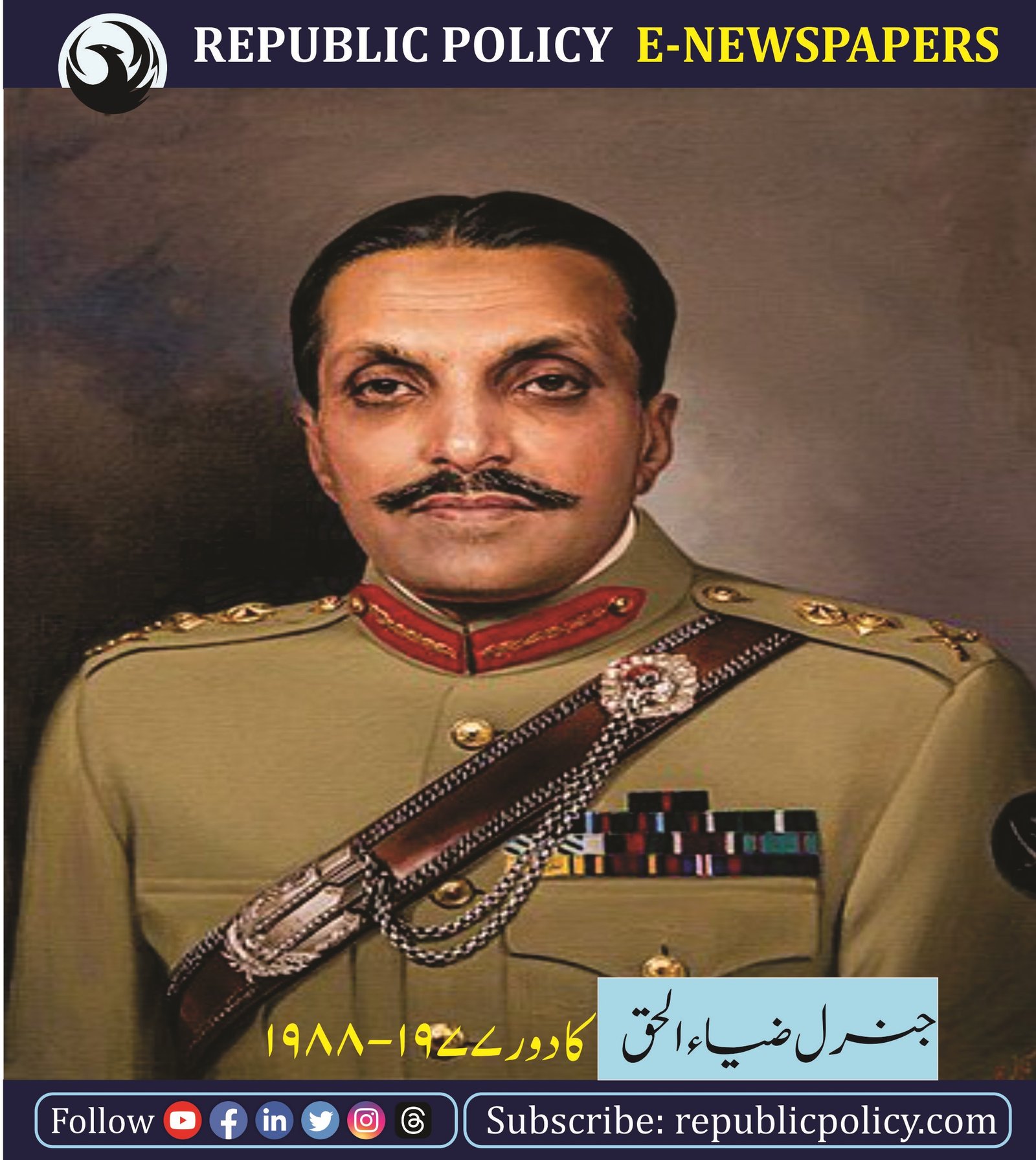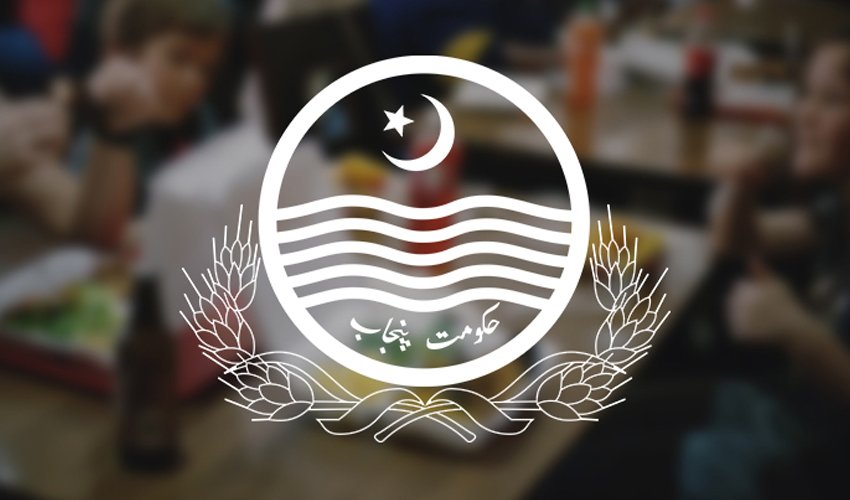Barrister Naveed Qazi
Pakistan’s turbulent political history is marked by various experiments with power, but no era exemplifies the political exploitation of religion more profoundly than the rule of General Zia-ul-Haq. His period was not simply a military dictatorship; it was an era where religion became a tool of governance, laws were altered under the guise of Islamic reform, and society began to shift toward a culture of extremism.
Follow Republic Policy Website
When Zia seized power in 1977 by overthrowing an elected government, he quickly wrapped his illegitimate rule in the rhetoric of faith. He declared himself the guardian of Islam, promising to implement “Nizam-e-Mustafa” (the system of the Prophet). The 1985 referendum, conducted under the pretense that voting for Zia meant endorsing Islamic rule, was a manipulative tactic that blurred the line between religion and politics. Through this maneuver, Zia sought to transform a military coup into a religiously sanctified regime.
Follow Republic Policy YouTube
During his rule, Zia introduced far-reaching legal changes such as the Hudood Ordinances, the establishment of Sharia courts, and a state-controlled Zakat and Ushr system. While presented as reforms to strengthen the Islamic character of the state, these measures were politically driven. They often served as instruments of suppression against women, minorities, and political dissenters, giving state coercion a religious façade and further undermining democratic space.
Follow Republic Policy Twitter
Externally, Zia’s policies intertwined religion with geopolitics. He positioned Pakistan as a frontline state in the Afghan jihad, framing the war against Soviet forces as an Islamic duty. This alignment secured Pakistan billions in U.S. aid, but the long-term costs were catastrophic. The jihad culture, proliferation of weapons, and state-sponsored patronage of militant seminaries introduced a new dimension of extremism into Pakistan’s social fabric. This gave birth to sectarian divisions and a violent radicalism that continue to haunt the nation.
Follow Republic Policy Facebook
Zia’s era left deep scars on Pakistan’s political and legal system. The legacy of his Islamization project persists in laws and institutions that remain contested today. His manipulation of religion undermined moderation and fueled sectarianism, distorting the vision of Pakistan as a tolerant and pluralistic society. What was presented as “Islamic governance” in reality weakened institutions, eroded democratic norms, and diminished the sanctity of religion itself.
Critically, Zia’s claim of implementing Islam was contradicted by his own actions. Islamic governance, as rooted in Quran and Sunnah, demands consultation, justice, and accountability through the will of the people—not authoritarianism imposed by force. Evaluated against Islamic values, Zia’s rule fell far short of the very ideals he invoked. His personal life and governance style hardly embodied the qualities of truthfulness, integrity, and justice he professed to champion.
Follow Republic Policy Instagram
The consequences of Zia’s Islamization extended beyond his death in the 1988 plane crash, which many considered a divine verdict on his misuse of religion. Even had he lived longer, it is likely he would have deepened his reliance on religion to consolidate power, dragging Pakistan into further ideological and social polarization. His rule provides a cautionary lesson: when religion is politicized, its sanctity diminishes, and society is hollowed from within.
Follow Republic Policy WhatsApp Channel
Zia-ul-Haq’s regime reminds Pakistan of a critical truth—religion must remain a sacred personal and spiritual domain. The state must be governed through democratic principles, constitutional supremacy, and the collective will of the people. Only by keeping religion free from political exploitation and ensuring governance rests on justice, transparency, and law can Pakistan move toward genuine progress. The misuse of faith as a political instrument is not only dangerous for democracy but a direct threat to the moral and social cohesion of the nation.














